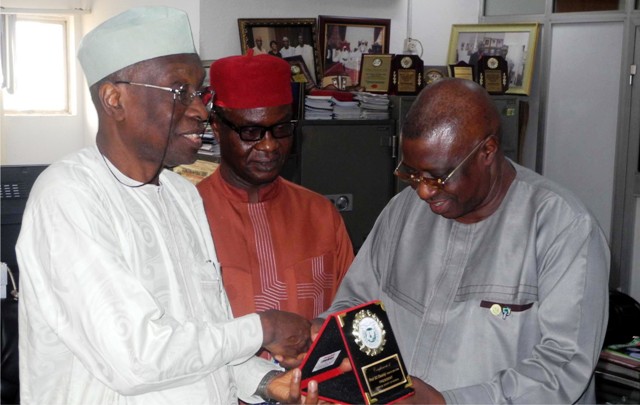Business
Private Firms, Coming Back To Nigeria – Buhari

Elated over Nigeria’s exit from crippling recession, President Muhammadu Buhari has said that foreign private companies were coming back to Nigeria.
The companies, he said, were making massive investments within the existing legal and regulatory frameworks.
Buhari expressed delight over the ‘significant’ growth in the non-oil sector which was creating thousands of jobs across the country.
At a meeting in Abuja with a Qatari business delegation led by the former Emir, Sheikh Hamad Bin Khalifa Al Thani, Buhari named some of the private investments.
They include the $9 billion Dangote Refinery and Petrochemical complex in Lagos and the completed $600 million Lafarge Plant in Calabar.
Others are the proposed rail stock; the proposed $1.3 billion public private partnership with General Electric on Rail Track Development; and the proposed ENI/Agip rehabilitation of Port Harcourt Refinery.”
“As you are aware, Nigeria just exited its worst recession in more than two decades. We have more than doubled our foreign reserves,” he said,
His Senior Special Assistant on Media and Publicity, Mr Garba Shehu, reported Buhari as saying: “We are winning the war against corruption, we are developing our infrastructure, and we are enforcing the rule of law.
“ As a result of this, we are seeing significant growth in the non-oil sector which is creating thousands of jobs across the country.”
He described the Federal Government’s economic agenda as one designed to move Nigeria from over-reliance on crude oil and food importation.
The President told the delegation that in the last two years, the policy has turned the nation into one of the most attractive investment destinations in Africa.
“My administration’s economic agenda has always been to move away from over-reliance on crude oil and food importation. Nigeria is a blessed country, we have fertile land, we have a young and energetic population, and we have a very strong legal and regulatory system that protects capital and investments, both local and foreign, he said.
He cited the current strategic partnership between Moroccan and Nigerian fertiliser companies as part of the success stories.
Business
Fidelity Bank To Empower Women With Sustainable Entrepreneurship Skills, HAP2.0
Business
President Tinubu Approves Extension Ban On Raw Shea Nut Export
Business
Crisis Response: EU-project Delivers New Vet. Clinic To Katsina Govt.
-

 Education5 days ago
Education5 days agoElga boss tasks law students on academics strides
-

 News1 day ago
News1 day agoAmend Constitution To Accommodate State Police, Tinubu Tells Senators
-

 Politics1 day ago
Politics1 day agoSenate Urges Tinubu To Sack CAC Boss
-

 News1 day ago
News1 day agoDisu Takes Over As New IGP …Declares Total War On Corruption, Impunity
-
Business1 day ago
President Tinubu Extends Raw Shea Nuts Export Ban To 2027
-
Business1 day ago
Crisis Response: EU-project Delivers New Vet. Clinic To Katsina Govt.
-

 Business2 days ago
Business2 days agoPENGASSAN Rejects Presidential EO On Oil, Gas Revenue Remittance … Seeks PIA Review
-
Business1 day ago
FG Pushes Cassava Bioethanol Drive To Boost Industrial Growth

